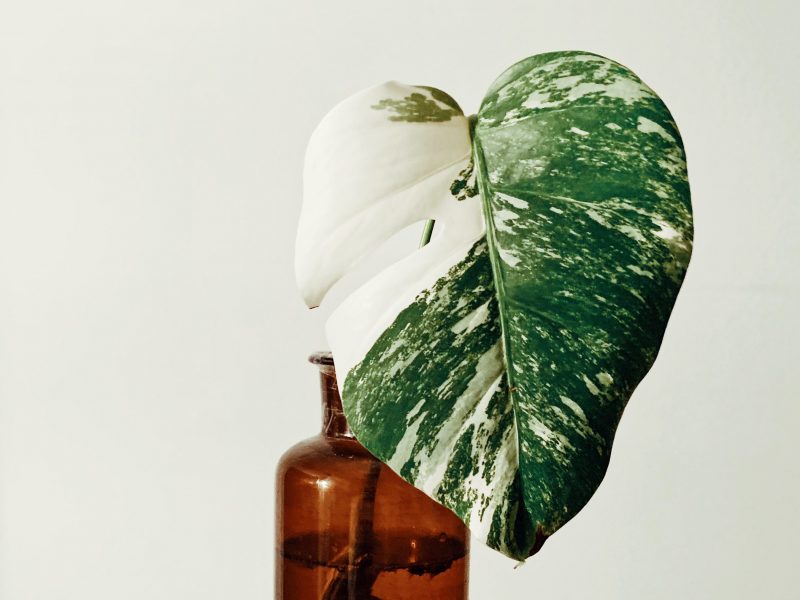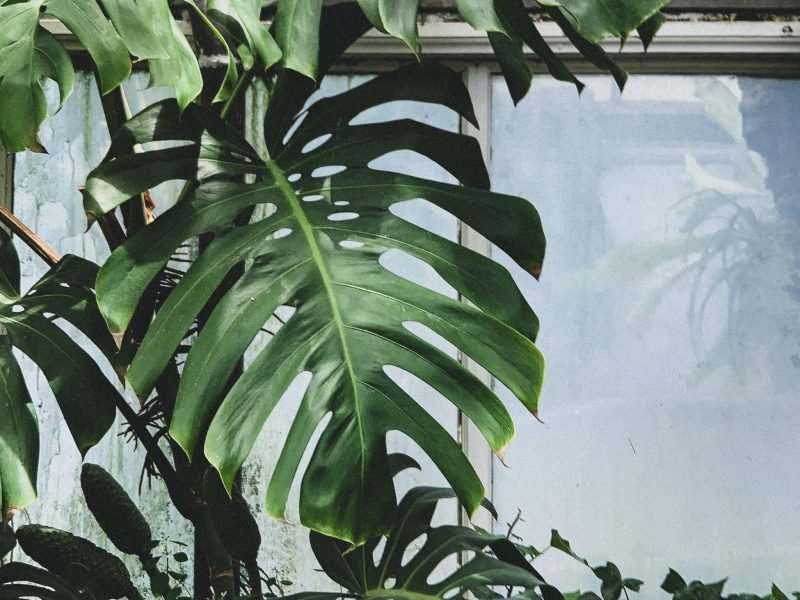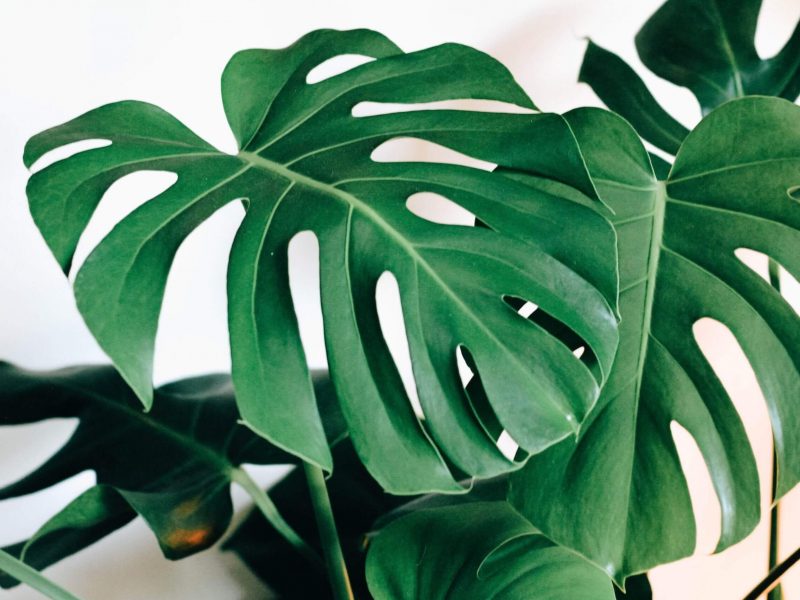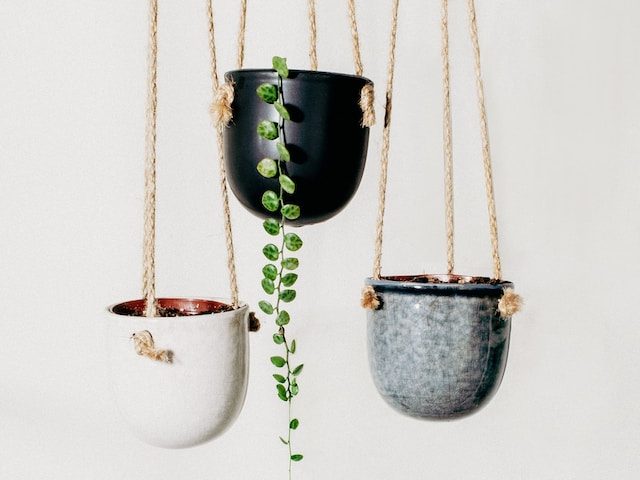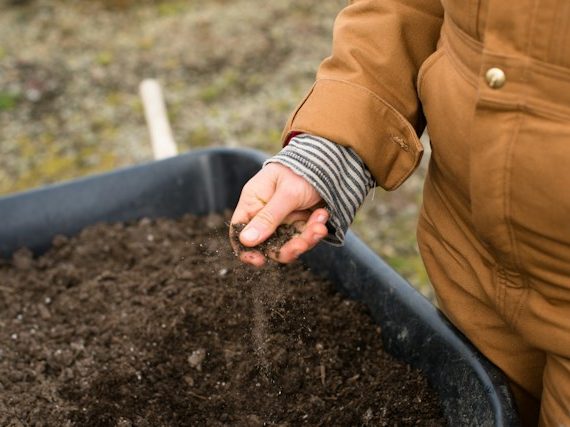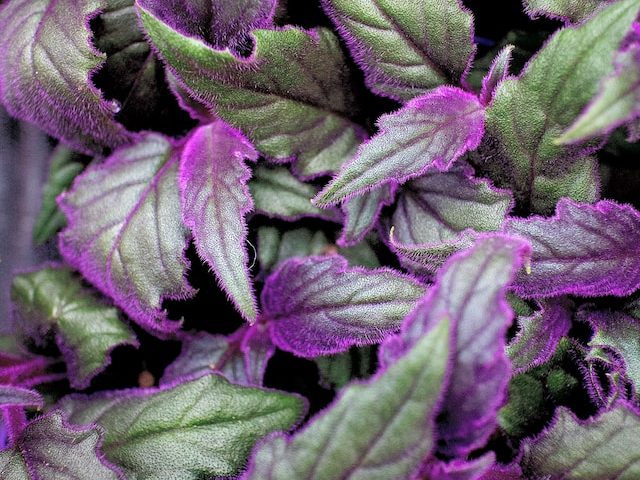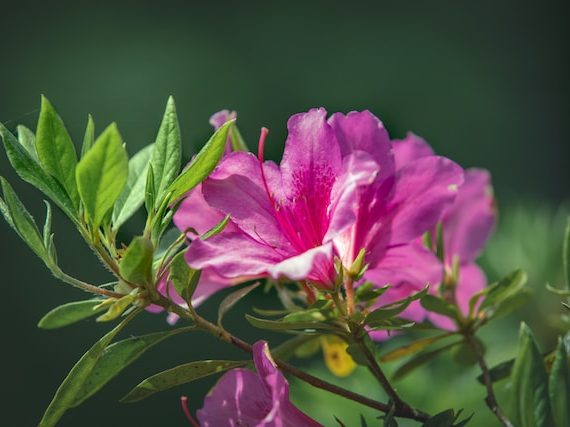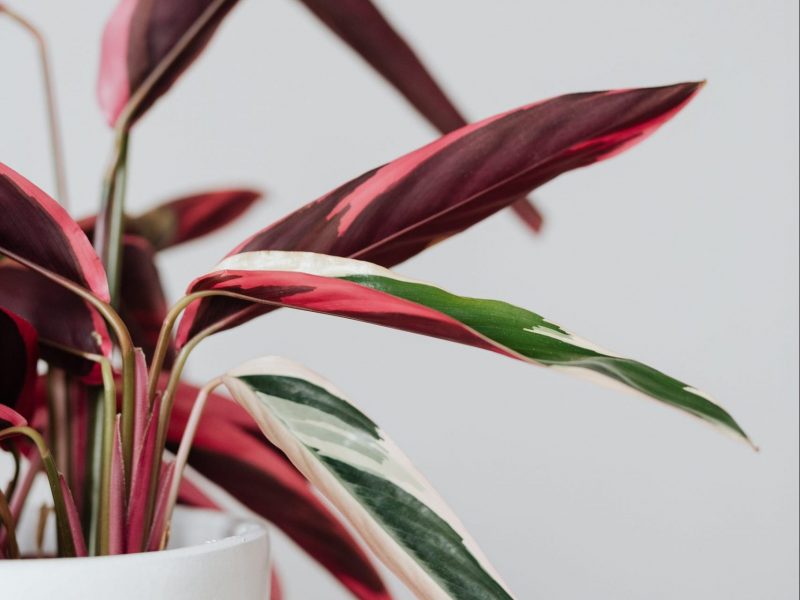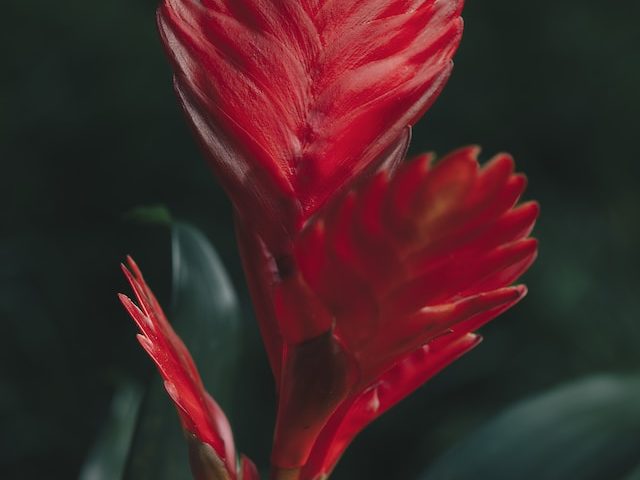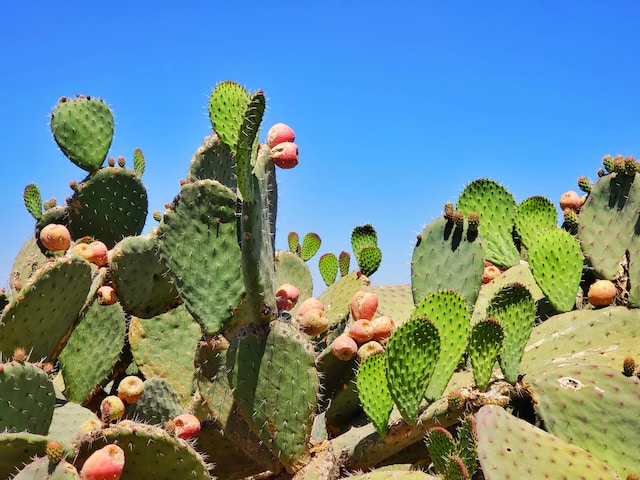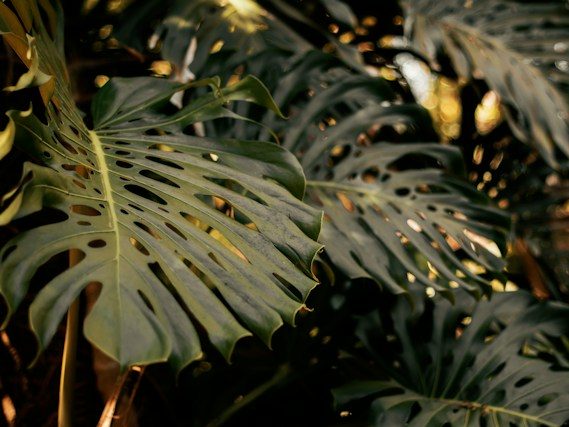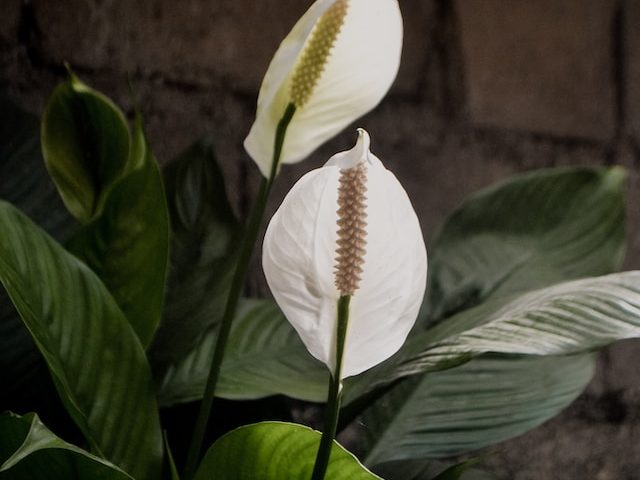Variegated Monstera Plant
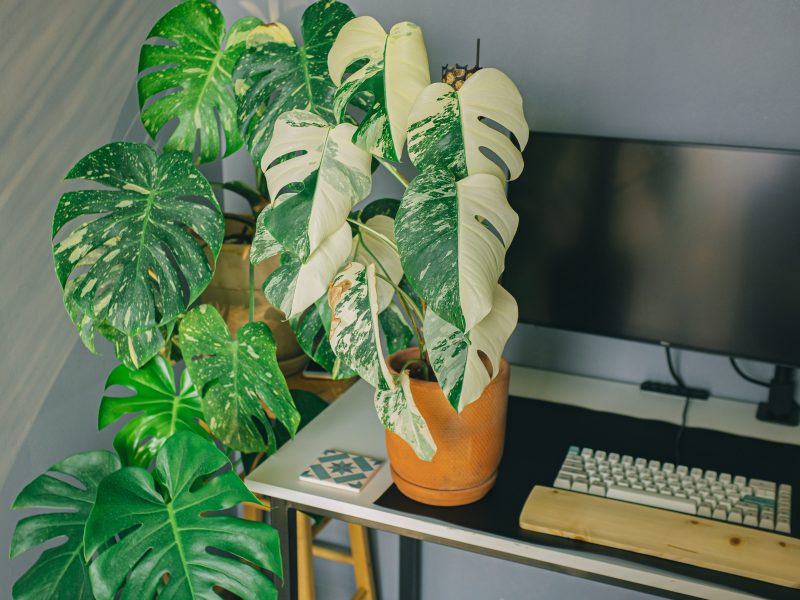
Introduction to Monstera Plants
The Monstera, more commonly known as the Swiss Cheese Plant, has become one of the most popular houseplants in the world. Native to the tropical rainforests of Central and South America, this plant has become iconic for its lush, glossy leaves that develop unique, heart-shaped holes called ‘fenestrations’ as they mature, resembling Swiss cheese (hence the name of course).
Monsteras are part of the Araceae family, which includes over a thousand species. However, the most commonly cultivated variety is Monstera deliciosa. This incredible plant not only adds a touch of the tropics to your interior décor but also purifies the indoor air by removing as common indoor pollutants including formaldehyde, benzene, and trichloroethylene.
Besides its aesthetic appeal, the Swiss Cheese Plant is a relatively easy plant to care for, making it an excellent choice for new plant parents. It’s forgiving of occasional neglect, and with the right care, it can grow into a magnificent centerpiece for your home or office.
Light Requirements for a Monstera Plant
Like many tropical plants, your Monstera thrives in bright, indirect light. While it can adapt to lower light conditions, inadequate light can lead to slower growth and smaller, less split leaves – a characteristic that makes this plant so unique.
Indirect Sunlight
This is light that has been diffused or scattered in some way. This means that the direct sun rays are not hitting your plant’s leaves. Try placing your plant near a north or east-facing window to avoid the harsh sun.
Direct Sunlight
Be cautious of too much direct sunlight. The intense light can scorch the leaves, leaving unsightly brown or yellow spots. If the only available light is direct, consider using a sheer curtain to diffuse it.
Artificial Light
Monstera can also grow under fluorescent light if needed, making it a good choice for spaces without access to plenty of natural light. Just ensure the light source is close enough to the plant to be effective.
Top tip: Remember to rotate your Monstera every few weeks to ensure all sides receive an equal amount of light. This promotes even growth and prevents the plant from leaning towards the light source (this can happen very quickly with these plants).
In order to help you monitor the light condition, you can use a simple light meter, or even certain smartphone apps, which can provide a rough estimate of the light intensity in any given area.
How to Water Your Monstera Plant
How much water does a Monstera need?
Monstera plants generally like their soil to be evenly moist but not waterlogged. It’s a common misconception that because these plants are tropical, they require a lot of water. In fact, overwatering can lead to root rot, a potentially deadly problem for your Swiss Cheese Plant.
Tip: The top 2 inches of the soil should be allowed to dry out between waterings (if you are watering from the top down). This encourages the plant to develop a healthy root system and avoids waterlogging the soil.
Steps to Water Your Monstera Plant
- Check the soil’s moisture level. You can do this by sticking your finger an inch or two into the soil. If it feels dry, it’s time to water. If your plant is less mature, you can also use the lifting method. Alternatively, a moisture meter is the most accurate way of determining soil moisture.
- Use lukewarm water, as cold water can shock the plant.
- Water your Monstera slowly, pouring water evenly around the base of the plant. Ensure the water is well-distributed and not pooling in one area.
- Let the water drain out the bottom of the pot. This is important to prevent water from sitting at the bottom and causing root rot.
- Wait for the top inch of the soil to dry out before watering again.
Remember: The frequency of watering will depend on the specific conditions of your home. Factors like humidity, temperature, and light can all affect how often your Monstera needs water so there is no one-fits-all routine we can recommend. A good rule of thumb is to check the moisture level of the soil every week, and adjust your watering schedule accordingly.
Humidity: A Key Factor in Monstera Plant Care
The importance of humidity in the care of your Monstera plant is so commonly overlooked. Swiss Cheese Plants thrive in high-humidity environments, mimicking their natural rainforest habitat.
The Ideal Humidity for Monstera
The optimal humidity range for Monstera is between 55% and 70%. In less humid environments, the plant’s growth may be stunted, its leaves may brown at the edges, and it may be more susceptible to pests.
How to Increase Humidity
Fortunately, there are several super easy ways to boost the humidity for your Monstera plant. Here are a few of our recommendations:
- Misting: Spraying your plant with a fine mist of water can help increase humidity. However, it’s important not to overdo it as too much moisture can lead to disease.
- Humidifier: An humidifier can provide consistent humidity, making it an excellent choice, especially in drier climates or during winter months when indoor air tends to be drier. It will do all the work for you!
- Pebble tray: Place your pot on a tray filled with pebbles and water. The water will evaporate around the plant, increasing the humidity. The reason you need to add pebbles is so that the roots aren’t sitting in the tray of water.
- Grouping plants: Plants can create their own microclimate. By placing several plants close together, they can help increase the humidity of the surrounding air.
Monitoring Humidity Levels
Keeping track of the humidity levels around your Swiss Cheese Plant is key to ensuring its health. A simple hygrometer can measure humidity in the air and is an invaluable tool for any indoor gardener. Often you’ll find that indoor digital thermometers have a humidity meter built in as well which is a great 2 in 1 option.
Monstera Temperature Requirements
Indoor Temperature
Monstera plants flourish in normal room temperatures between 68°F (20°C) and 86°F (30°C). They are tropical plants and hence enjoy a warm, humid environment.
Outdoor Temperature
If you’re growing your Monstera outdoors, make sure it’s not exposed to temperatures below 50°F (10°C). Brief exposure to cooler temperatures won’t kill the plant, but prolonged periods can cause damage as the cells in the leaves may start to freeze and burst.
Temperature Tips for Monstera Care
- Avoid placing your Swiss Cheese Plant near air conditioners, heaters, or drafts. These can create sudden temperature changes.
- Monitor the temperature regularly, especially during winter months, to ensure it doesn’t drop too much.
- If the air in your home is dry, consider using a humidifier to keep your Monstera plant happy.
Monstera Thai Constellation Plant
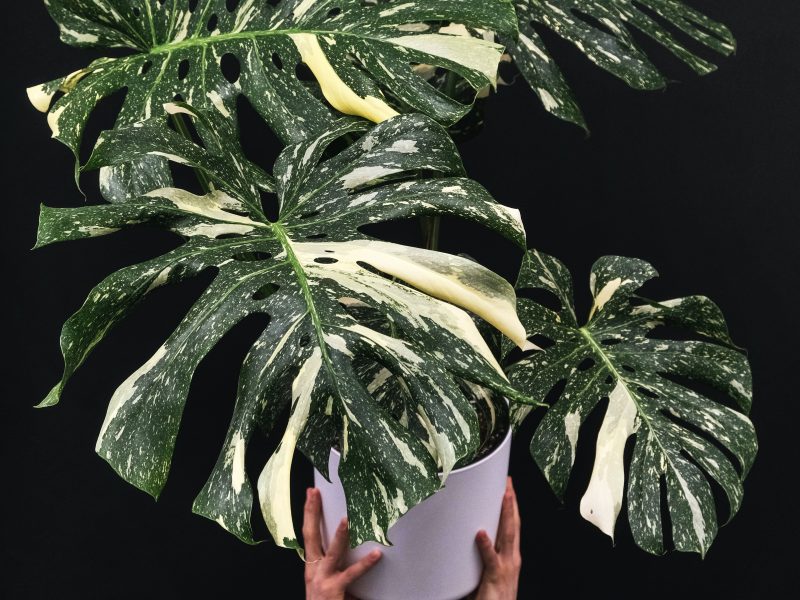
Fertilizing your Monstera: The Complete Guide
The Importance of Fertilizer
Fertilizers are like multivitamins for your Monstera plant. Good quality fertilizer contains a blend of essential nutrients that your plant needs to thrive, including nitrogen, phosphorus, and potassium, often referred to as N-P-K. These elements help in leaf development, root growth, and disease resistance.
Choosing the Right Fertilizer
When choosing a fertilizer, consider a balanced, water-soluble fertilizer with equal amounts of nitrogen, phosphorus, and potassium. These are often labelled as 10-10-10 or 20-20-20. You can find these pretty easily at any local garden store or online.
How Often to Fertilize
Monstera plants do not require excessive fertilization. Generally, feeding your Swiss Cheese Plant once a month during the growing season (spring and summer) will be plenty. You then want to cut back all fertilizer during autumn and winter as your plant will be in its dormant phase and fertilizing during this time can cause more harm than good.
How to Fertilize Your Monstera
- Prepare your fertilizer by diluting it with water according to the package instructions. Make sure to mix it well and we often recommend diluting more than recommended to be on the safe side.
- Before feeding, water your Monstera thoroughly. This helps to prevent the fertilizer from burning the plant’s root ball.
- Pour the diluted fertilizer evenly around the base of the plant, ensuring it reaches the root zone.
Repotting your Monstera
Your Swiss Cheese Plant can only continue to grow larger and healthier if given room to expand. The process of repotting can often seem daunting, but it doesn’t have to be. With a few simple steps, you can successfully repot your Swiss Cheese Plant and maintain its health long-term.
When to Repot
The best time to repot your Monstera is in the spring or early summer, during the plant’s active growing season. This will allow the root system to grow nicely into the new space, as well as provide the best environment for your plant to recover from the shock. If you notice that the roots are growing out of the drainage holes of the pot, or if the plant’s growth seems to have stalled, these are strong signs that it’s time to repot.
Choosing the Right Pot
Always choose a pot that’s only one to two sizes larger than the current one. If the pot is too large it can cause instability issues and increase the risk of root rot (as more soil means more water retention).
The pot should also have adequate drainage holes to prevent waterlogging and allow excess water to flow out. Ceramic pots are often recommended because they are sturdy and allow for good air circulation around the roots.
Steps to Repot your Monstera
- Prepare the new pot: Add a layer of potting mix to the bottom of your new pot. Use a well-draining soil mix, preferably one designed for aroids.
- Remove the plant: Carefully remove the Monstera from its current pot. Loosen the roots gently using your fingers, removing some of the old soil. This will stimulate new growth after repotting.
- Place the plant: Position the plant in the new pot, ensuring it’s in the center. The top of the root ball should be slightly below the rim of the pot.
- Add soil: Fill in any gaps with more potting mix, pressing down lightly to remove any air pockets.
- Water the plant: Water thoroughly until water drains out of the bottom, ensuring the new soil is fully moistened.
Monstera Leaf Cutting
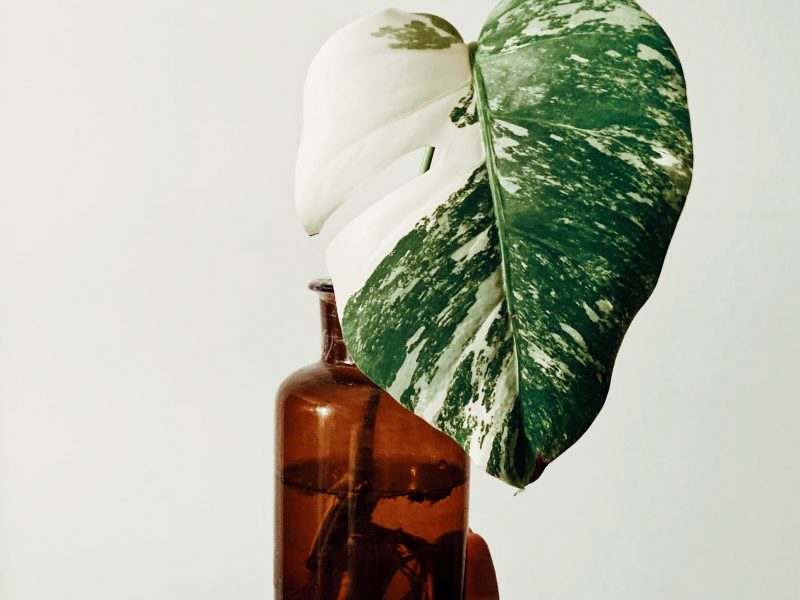
Pruning Your Monstera Plant
When to Prune
Monstera plants are generally resilient and can be pruned at any time of the year. However, the best time to prune your Swiss Cheese Plant is in early spring, just before the plant starts its active growing season. Doing this allows the plant to focus its energy on producing new growth.
However, if you notice any dead or dying leaves, prune these off at any point in the year.
What You’ll Need
- Sharp, clean pruning shears or scissors
- Gloves to protect your hands from the plant’s sap
- A clean cloth for wiping any sap that may get on you or your surfaces
- And a plastic bag or compost bin to dispose of the cuttings
Steps to Prune
- Identify the parts you want to prune. Look for stems that are overly leggy, have yellow or brown leaves, or look unhealthy in any way;
- Using your shears, make a cut just above a leaf node (the point where a leaf or branch is or was attached). Be careful not to damage the node;
- Collect the cuttings and dispose of them properly;
- Wipe any sap that may have gotten on you or your surfaces with a clean cloth.
Note: Some Monstera plants can produce a lot of sap when pruned. If you notice a cut oozing sap, don’t panic! This is normal and the sap will eventually stop flowing on its own.
Cleaning a Monstera: Why, When and How
Why Clean Your Monstera?
Enhanced Photosynthesis: Plants breathe and take in sunlight through tiny pores on their leaves called stomata. When these are clogged with dust, it hinders photosynthesis, the process by which plants produce food.
Pest Prevention: Regular cleaning helps to keep pests at bay. Insects such as spider mites and mealybugs are less likely to infest a clean plant.
When Should You Clean Your Monstera?
Aim to clean your Monstera’s leaves once every two weeks. However, this can vary depending on the environment. If your Swiss Cheese Plant is in a particularly dusty area, you may need to clean it a little more often. You may also need to do less regular deeper cleans after building works for example.
How to Clean Your Monstera
- Prepare Your Cleaning Solution: Mix a few drops of mild dish soap with warm water but avoid using any other chemicals as they can damage the leaves.
- Wipe the Leaves: Use a soft cloth or sponge to gently wipe each leaf. Be careful not to scrub too hard as this can damage the leaf surface. We always support the back of the leaf with the other hand to avoid damage.
- Rinse and Dry: Rinse off any soap residue with clean water and pat the leaves dry with a towel.
Toxicity of the Monstera Plant
The Monstera is toxic to both humans and pets as it contains calcium oxalate crystals. When ingested, these crystals can cause a variety of symptoms such as mouth and throat irritation, swelling of the lips, tongue, and throat, difficulty swallowing, vomiting and excessive drooling
While these symptoms are typically mild, they can be quite distressing for both the individual affected and the concerned pet owner or parent. If you suspect that your pet or child has ingested any part of the Monstera plant, it is recommended to seek immediate medical or veterinary attention.
It is also crucial to handle the plant with care during pruning or repotting as the sap can cause skin irritation. Wearing gloves and washing hands thoroughly after handling the plant can prevent this.
Common Pests and Diseases that affect Monstera Plants
Common Pests
- Spider Mites: Tiny, spider-like creatures, often found on the underside of leaves and at the stem joints. They create thin webbing and cause the leaves to develop light spots or flecks. Raising humidity and using an insecticide can help control them.
- Mealybugs: These pests look like small, fluffy white bugs. They suck sap from the plant causing yellowing and curling of leaves. Treating with insecticidal soap or neem oil can combat mealybugs.
- Scale: Brown or black bumps on the plant’s stems or the undersides of leaves are signs of scale. They can be manually removed or treated with an insecticidal soap.
- Thrips: Tiny, slender insects that can cause discoloration and scarring on the leaves. They can be difficult to see but are often revealed by shaking the plant gently over a white surface. Insecticides can help control thrips.
Common Diseases
- Root Rot: If your Monstera’s leaves are turning yellow or brown and the plant seems generally unhealthy, you may be overwatering, leading to root rot. Check the soil moisture to confirm the issue and reduce watering. If the soil is still waterlogged, consider repotting into fresh, well-draining soil.
Leaf Spot: Brown or black spots on the leaves, often with a yellow halo, can indicate a bacterial or fungal leaf spot. Improve air circulation and avoid getting the leaves wet when watering to prevent this disease..
Monstera FAQs
Are Monstera plants easy to care for?
Whilst they aren’t totally low maintenance, Monstera plants aren’t that difficult to care for once you’ve found the right spot for them. Plenty of indirect sunshine, a consistent watering routine and regular misting will keep your Swiss Cheese Plant happy!
How much sunlight does my Monstera need?
Swiss Cheese Plants like bright but indirect light. Keep them away from direct sunshine during summer as it can be a little too intense for them. Whilst they can adapt to lower light levels, you’ll find growth is slower and the leaves won’t have many splits in as they need to capitalise on every bit of sunshine.
Are Monstera plants toxic?
Yes, both the leaves and the stems are mildly toxic and can cause stomach irritation if ingested.
Can a Monstera tolerate full sun?
You want to find somewhere with bright but indirect light for your Monstera. Whilst they can handle direct light during winter, avoid it during the hotter months of the year.
Do Monstera plants all need moss poles?
As they mature, Swiss Cheese Plant plants will need a moss pole when grown in your home. This is because they need something to hold on to and climb up.
Why do Monstera plants have split leaves?
There are two reasons why Monstera plants have split leaves. Firstly, is to let sunshine through to the lower parts of the plant and secondly, the splits also help with drainage, to ensure that the water can flow off the leaves.
Common Problems with your Monstera
Why doesn't my Monstera have splits in its leaves?
If your Swiss Cheese Plant is matured and there are no splits in the leaves this will be caused by too little light. Try moving your Monstera to a sunnier spot and the new growth should have splits in. We have written a whole guide on getting splits in your Swiss Cheese Plant’s leaves here.
Why are my Monstera's leaves turning yellow/brown?
Yellow leaves on a Monstera plant are often a symptom of overwatering. Check whether the soil at the bottom of the pot is water-logged and replace accordingly. You can find more information in our guide on fixing yellow leaves.
Why are my Monstera's leaves drooping?
Drooping leaves on a Monstera can either be caused by over or underwatering. The easiest way to check is simply by taking your Swiss Cheese Plant out of its pot and checking how damp the soil is. We have written a whole blog post on this here.
Why isn't my Monstera standing up?
Swiss Cheese Plants can grow pretty wildly and not always in the desired direction. The easiest option is to stake your plant with a moss pole to encourage upwards growth.
My Monstera looks as if it is dying
There can be many causes why your Swiss Cheese Plant may be dying. We have written an extensive guide on how to revive your dying Monstera and nurture it back to full health.
Why are my Monster's leaves brown?
Brown leaves on a Swiss Cheese Plant tend to be caused by a few main issues; over- or underwatering, dry air or leaf burn. Check out our guide on brown Monstera leaves for more information on diagnoses and how to fix the problem.



